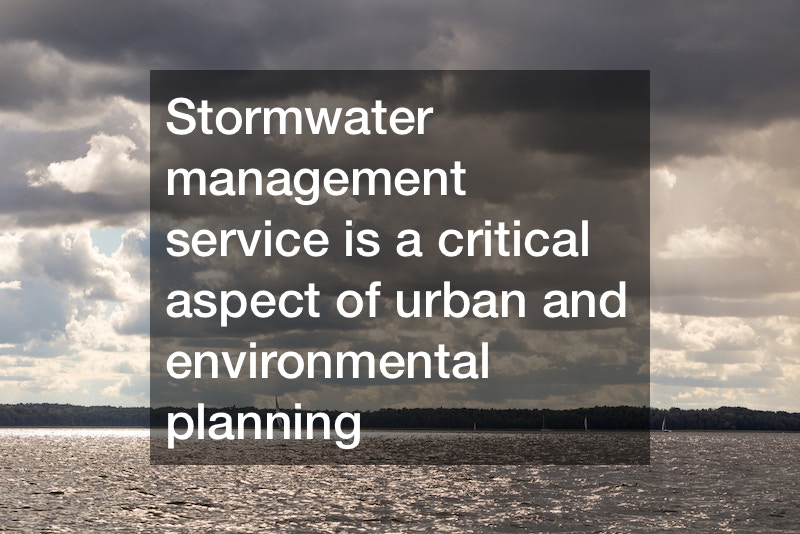Stormwater management service is a critical aspect of urban and environmental planning that addresses rainwater runoff, snowmelt, and other precipitation. Proper management helps prevent flooding, erosion, and water pollution. Here’s what you need to know about stormwater management services:
1. Importance of Stormwater Management: Uncontrolled stormwater runoff can lead to issues, including flooding of streets and properties, erosion of soil and stream banks, and the transportation of pollutants into rivers and lakes. Effective stormwater management mitigates these problems.
2. Types of Stormwater Management: Stormwater management strategies include detention and retention ponds, vegetated swales, permeable pavements, and green roofs.
3. Regulatory Compliance: Many areas have stormwater regulations that require property owners and developers to implement stormwater management systems.
4. Water Quality Improvement: Stormwater management helps improve water quality. It filters out sediments, chemicals, and bacteria, protecting aquatic ecosystems and public health.
5. Erosion Control: Erosion caused by stormwater runoff can degrade landscapes, damage infrastructure, and harm aquatic habitats. Stormwater management techniques like erosion control blankets and silt fences help stabilize soil and prevent erosion.
6. Sustainable Approaches: Rain gardens and permeable pavements manage stormwater and provide additional benefits like habitat creation and enhanced aesthetics.
7. Public Awareness: Encouraging responsible behaviors like limiting the use of fertilizers and properly disposing of waste can reduce the introduction of pollutants into stormwater.
8. Maintenance: Regular maintenance of stormwater management systems is crucial for their effectiveness. Inspections, cleaning, and repairs ensure these systems continue functioning as intended.
.


